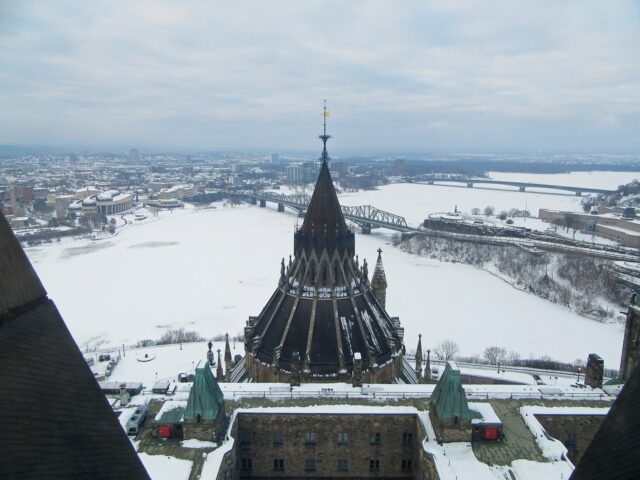Prime Minister Justin Trudeau’s decision to resign as leader of the Liberal Party has sent shockwaves through Canada’s political landscape, marking the end of nearly a decade-long tenure defined by both sweeping reforms and growing controversy. Trudeau’s announcement sets the stage for a leadership race that could reshape the Liberal Party’s fortunes ahead of the next federal election.
John Milloy, Assistant Professor and Director at the Centre for Public Ethics at Martin Luther University College, and a former Ontario cabinet minister, described Trudeau’s resignation as a critical turning point for the party.
“Justin Trudeau had become extremely unpopular,” Milloy said in an interview. “While the Liberal Party still has its base, much of the criticism has been aimed at Trudeau personally. His departure opens the door for a new leader who might have broader appeal to Canadians.”
Trudeau’s decision follows mounting challenges, including declining approval ratings, rising criticism of government policies, and increasing pressure from opposition parties. As the Liberals prepare to choose a successor, the question remains whether new leadership can revive the party’s electoral prospects or whether the resignation signals a deeper political shift.
Milloy noted that the Liberals face a difficult road ahead, particularly as the opposition seeks to capitalize on voter dissatisfaction.
“This gives the party a bit of a shot in the arm during what is, frankly, a dire situation,” he said. “We’ve seen leadership changes go both ways—Kim Campbell replaced Brian Mulroney and suffered a dramatic defeat, but Kathleen Wynne succeeded Dalton McGuinty and went on to win a majority government. Anything is possible.”
The choice of Trudeau’s successor, Milloy emphasized, will be pivotal.
“Depending on who the Liberals choose—whether it’s someone like Mark Carney, a political outsider, or someone with federal experience like Chrystia Freeland—it could reshape the next election,” he said. “The opposition likely hoped to define themselves against Trudeau, but a new face could force them to recalibrate their strategy.”
While the Liberal Party’s struggles are not solely tied to Trudeau’s leadership, Milloy noted that his departure offers an opportunity to reset.
“The party is unpopular not just because of Trudeau but because it’s been in power for years. Voters often start looking for change,” he said. “The challenge for the new leader will be to reintroduce themselves quickly to Canadians and present a credible vision for the future.”
Milloy acknowledged the short timeline for such a transformation, particularly with the possibility of an election looming.
“They’ll need to unite the party, energize their base, and appeal to undecided voters,” he said. “It’s going to be very tough, but it’s not impossible.”
Trudeau’s resignation also raises broader questions about the state of Canadian federal politics. Milloy suggested the move could either stabilize the political landscape or accelerate shifts in party dynamics.
“There was a real risk of the Liberals slipping into third or even fourth place,” he said. “A new leader could prevent that and help maintain Canada’s three-party system. But it all depends on whether they can generate excitement and momentum.”
Milloy dismissed suggestions that the Liberals might lose official party status, pointing to past examples of political rebounds following leadership changes.
“With the right leader, the Liberals can remain competitive. Kathleen Wynne faced long odds and managed to win a majority,” he said. “It’s too early to write them off.”
Despite Trudeau’s declining popularity, Milloy urged Canadians to consider his accomplishments during his time in office.
“Yes, Trudeau became polarizing, but he also led the country through the pandemic and introduced policies that resonated with many Canadians,” he said. “His legacy shouldn’t be overshadowed by his exit.”
Trudeau’s resignation sets the stage for a leadership contest that will not only define the future of the Liberal Party but could also reshape the broader political landscape. As potential candidates emerge and Canadians prepare for an election, the focus will shift to whether the Liberals can reinvent themselves—or whether Trudeau’s departure marks the beginning of a more significant shift in Canadian politics.





































